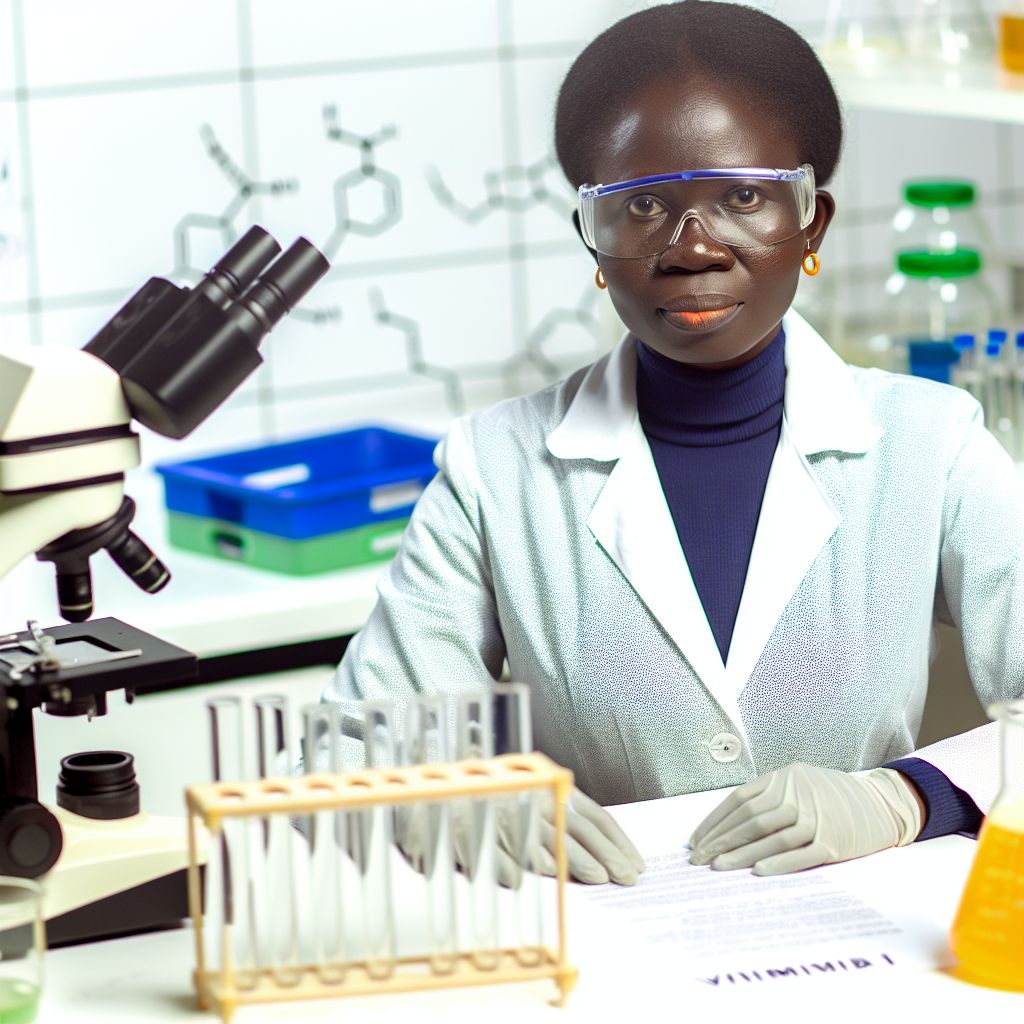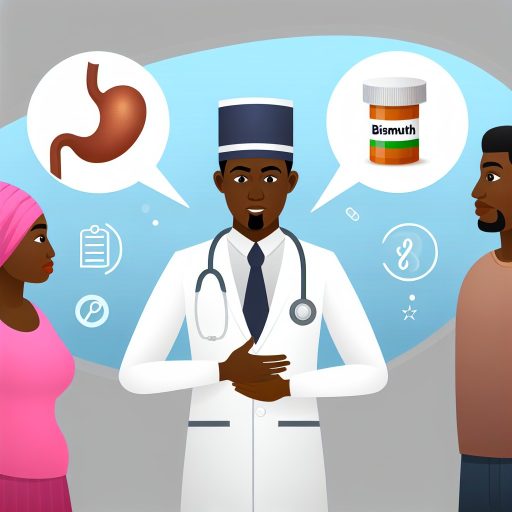Introduction:
Cobalt is an essential trace mineral crucial for maintaining good health.
It plays a vital role in various biological processes in the human body.
One of the most significant connections of cobalt in human health is its involvement in the production of Vitamin B12, also known as cobalamin.
Vitamin B12 is a water-soluble vitamin that is crucial for the proper functioning of the brain, nervous system, and the formation of red blood cells.
However, the human body does not produce Vitamin B12 on its own.
Instead, it relies on external sources like animal products or supplements for adequate intake.
Cobalt comes into play as it is a key component of Vitamin B12, forming the core structure of the vitamin molecule.
Importance of Cobalt in Vitamin B12 Production:
The role of cobalt in the production of Vitamin B12 is indispensable.
Cobalt is the center of the corrin ring structure in the vitamin.
During the synthesis of Vitamin B12, cobalt is incorporated into the corrin ring, which is crucial for the vitamin’s biological activity.
Without sufficient cobalt, the body would not be able to produce an adequate amount of Vitamin B12, leading to potential health problems.
Deficiency in Vitamin B12 can result in symptoms such as anemia, fatigue, neurological issues, and impaired cognitive function.
Therefore, ensuring an adequate intake of cobalt through dietary sources is essential for supporting optimal Vitamin B12 production in the body.
What is cobalt?
– Definition of cobalt as a trace mineral.
– Natural sources of cobalt in food.
Unlock the Power of Nigerian Food Minerals
Discover personalized Food Advisory tailored to boost your health or business using expert insights on Nigerian minerals.
Get StartedUnderstanding Cobalt as a Trace Mineral
Cobalt is a chemical element with the symbol Co and atomic number 27.
It is a hard, lustrous, silver-gray metal that is naturally occurring and is considered a trace mineral essential for human health.
Role of Cobalt in Vitamin B12 Production
Cobalt plays a crucial role in the synthesis of vitamin B12, also known as cobalamin, which is a vital nutrient for human health.
Vitamin B12 is necessary for red blood cell formation, neurological function, and DNA synthesis.
Natural Sources of Cobalt in Food
Cobalt is found in various food sources, including animal products like meat, dairy products, and eggs.
Additionally, some plant-based sources contain cobalt, such as legumes, nuts, and certain vegetables like spinach and kale.
Benefits of Cobalt for Health
Aside from its role in vitamin B12 production, cobalt also has other health benefits.
It helps in maintaining a healthy metabolism, supporting nerve function, and promoting overall well-being.
Cobalt Deficiency and Toxicity
While cobalt deficiency is rare, it can lead to symptoms like fatigue, anemia, and neurological issues.
On the other hand, excessive intake of cobalt can be toxic and cause symptoms like thyroid dysfunction and heart problems.
Regulating Cobalt Intake
It is essential to consume cobalt in appropriate amounts to prevent deficiency or toxicity.
Consulting a healthcare provider or a registered dietitian can help determine the right balance of cobalt in your diet.
Importance of Cobalt for Health
Cobalt is a vital trace mineral that is necessary for vitamin B12 production and overall health.
By including cobalt-rich foods in your diet, you can ensure you’re getting an adequate amount of this essential nutrient.
Captivate Your Audience with Exclusive Nigerian Food Content
Imagine your platform enriched with unique, mineral-rich Nigerian cuisine stories that no one else can offer. Let's create content that resonates deeply and sets you apart.
Get StartedImportance of Cobalt for the Body:
Cobalt is an essential trace element that is crucial for human health.
It is a key component of Vitamin B12, also known as cobalamin, which is necessary for the proper functioning of the nervous system, DNA synthesis, and red blood cell production.
- Cobalt plays a critical role in the synthesis of hemoglobin, the protein in red blood cells that carries oxygen throughout the body.
- Without an adequate supply of cobalt, the body’s ability to produce red blood cells is impaired, leading to anemia.
- In addition to its role in red blood cell production, cobalt is also essential for DNA synthesis.
- Cobalt is a component of cobalamin, which acts as a coenzyme in the synthesis of nucleic acids, the building blocks of DNA.
Role of Cobalt in Red Blood Cell Production:
Red blood cells are essential for transporting oxygen from the lungs to the rest of the body.
Cobalt is a crucial component of Vitamin B12, which is necessary for the maturation of red blood cells in the bone marrow.
- Without sufficient cobalt, the body cannot produce hemoglobin, the protein that binds to oxygen and allows red blood cells to transport it to tissues and organs.
- This can lead to anemia, fatigue, and other health problems.
- Cobalt deficiency can result in megaloblastic anemia, a condition characterized by large, immature red blood cells.
- This can lead to symptoms such as weakness, shortness of breath, and pale skin.
Relationship Between Cobalt and DNA Synthesis:
Cobalt plays a crucial role in DNA synthesis by acting as a coenzyme in several essential metabolic pathways.
Cobalt is required for the conversion of methylmalonyl-CoA to succinyl-CoA, a key step in the metabolism of fatty acids and amino acids.
- Without sufficient cobalt, the body’s ability to synthesize DNA is impaired, leading to disruptions in cell division and growth.
- This can have serious consequences for overall health and development.
- Cobalt deficiency can result in neurological problems, as Vitamin B12 plays a key role in maintaining the integrity of the myelin sheath that surrounds nerve cells.
- Without enough cobalt, nerve function can be compromised, leading to symptoms such as numbness, tingling, and cognitive impairment.
Explore Further: Cesium: Investigating Its Role in Human Health
Cobalt’s Role in Vitamin B12 Production:
When it comes to vitamin B12 production, cobalt plays a crucial role in the process.
Vitamin B12, also known as cobalamin, is a water-soluble vitamin that is essential for various bodily functions.
Cobalt is a key component of the structure of vitamin B12.
In fact, the central atom in the vitamin B12 molecule is cobalt, which is essential for its biological activity.
This means that without cobalt, vitamin B12 cannot function properly in the body.
Importance of Vitamin B12 in Nerve Function and DNA Synthesis:
Vitamin B12 is essential for maintaining healthy nerve function.
It plays a vital role in the production of myelin, a substance that insulates nerve fibers and allows for proper nerve conduction.
Without enough vitamin B12, nerve function can be compromised, leading to symptoms such as tingling, numbness, and muscle weakness.
Additionally, vitamin B12 is crucial for DNA synthesis.
It is involved in the production of red blood cells and helps in the maintenance of genetic material.
Adequate levels of vitamin B12 are necessary for proper cell division and growth.
Without enough vitamin B12, cells may not be able to replicate and function properly, leading to various health issues.
Cobalt’s role in vitamin B12 production is essential for maintaining optimal nerve function and DNA synthesis.
Without cobalt, vitamin B12 cannot function properly, leading to a host of health issues.
It is important to ensure an adequate intake of cobalt and vitamin B12 to support overall health and well-being.
Learn More: Germanium: Boosts Immune System and Oxygen Utilization
How to ensure an adequate intake of cobalt:
The recommended daily intake of cobalt for adults is 2-6 μg per day.
Cobalt is essential for the production of vitamin B12, which is crucial for nerve function and DNA synthesis.
Here are some foods rich in cobalt:
- Shellfish: Shellfish, such as clams, oysters, and mussels, are excellent sources of cobalt.
- Animal liver: Liver from animals like beef and chicken contains high levels of cobalt.
- Leafy greens: Spinach, kale, and other leafy greens also provide a good amount of cobalt.
- Nuts and seeds: Nuts like almonds, peanuts, and sunflower seeds are rich in cobalt.
- Whole grains: Whole grains like oats, barley, and wheat contain cobalt as well.
- Dairy products: Dairy foods such as milk, cheese, and yogurt are good sources of cobalt.
You Might Also Like: Selenium: Powerful Antioxidant for Immune Support

Signs of cobalt deficiency:
- Symptoms of cobalt deficiency in the body.
- Health risks associated with inadequate cobalt intake.
Cobalt is a vital mineral that plays a crucial role in the production of Vitamin B12 in the body.
Without an adequate supply of cobalt, the body may experience various signs of deficiency, leading to serious health risks.
Symptoms of cobalt deficiency:
- Fatigue: Cobalt deficiency can lead to feelings of tiredness and low energy levels.
- Anemia: A lack of cobalt can result in a type of anemia called megaloblastic anemia.
- Nerve damage: Cobalt deficiency may cause neurological symptoms such as tingling or numbness.
- Cognitive impairment: Inadequate cobalt intake can affect brain function and cognition.
Health risks associated with inadequate cobalt intake:
- Vitamin B12 deficiency: Cobalt is essential for the synthesis of Vitamin B12, which is crucial for nerve function and DNA synthesis.
- Neurological problems: Without enough cobalt, nerve function may be compromised, leading to neurological disorders.
- Cardiac issues: Cobalt deficiency can impact the heart muscles, causing cardiovascular problems.
- Developmental delays: In infants and children, cobalt deficiency may result in delays in growth and development.
It is important to ensure an adequate intake of cobalt through dietary sources such as seafood, meat, dairy products, and certain vegetables.
If you suspect a cobalt deficiency, consult with a healthcare professional to determine the best course of action to address the issue.
Gain More Insights: Lithium: Trace Element for Mental Health Support
Cobalt Toxicity and Precautions
Excessive consumption of cobalt can have detrimental effects on the body.
These effects can range from mild symptoms to severe conditions.
Here are some possible effects of excessive cobalt consumption:
- Thyroid gland dysfunction: Cobalt can interfere with the thyroid’s ability to produce hormones, leading to issues with metabolism and energy levels.
- Cardiovascular problems: High levels of cobalt in the body can impact the heart and blood vessels, potentially leading to heart disease and hypertension.
- Neurological disorders: Cobalt toxicity has been linked to symptoms such as numbness, tingling sensations, and even cognitive impairment.
- Skin problems: Some individuals may experience skin rashes, irritation, or discoloration as a result of cobalt exposure.
- Reproductive issues: Studies have shown that cobalt toxicity can negatively affect fertility and reproductive health in both men and women.
Recommendations for Avoiding Cobalt Toxicity
To prevent cobalt toxicity and ensure optimal health, it’s essential to take the following precautions:
- Balanced diet: Consume a well-rounded diet rich in essential nutrients to reduce the risk of cobalt toxicity.
- Limit cobalt supplements: If you’re taking cobalt supplements, consult with a healthcare professional to determine the appropriate dosage.
- Avoid excessive seafood consumption: Some seafood varieties may contain high levels of cobalt, so it’s advisable to consume them in moderation.
- Monitor cobalt exposure: Be aware of potential sources of cobalt in your environment, such as industrial settings or certain occupations.
- Stay informed: Keep up-to-date with the latest research on cobalt toxicity and follow guidelines provided by health organizations.
By incorporating these recommendations into your lifestyle, you can minimize the risk of cobalt toxicity and maintain optimal well-being.
Importance of Cobalt in Vitamin B12 Production
Cobalt is an essential mineral required for the synthesis of vitamin B12 in the body.
It plays a key role in the formation of the corrin ring structure of vitamin B12.
Without sufficient cobalt, the body is unable to produce an adequate amount of vitamin B12.
Vitamin B12 is crucial for various physiological functions, including energy production and DNA synthesis.
Deficiency of vitamin B12 can lead to a variety of health issues such as anemia and neurological problems.
Therefore, ensuring an adequate intake of cobalt is essential for maintaining optimal vitamin B12 levels.
Combining cobalt-rich foods like fish, meat, and dairy products with vitamin B12 sources can help prevent deficiencies.
Individuals following a vegan diet may need to consider taking cobalt supplements to meet their needs.
Incorporating cobalt into your diet through natural sources is the best way to support vitamin B12 production.
Supporting Vitamin B12 Production Through Cobalt
Recap of the importance of cobalt in vitamin B12 production:
Cobalt is crucial for the synthesis of vitamin B12, which is essential for energy production and overall health.
Encouragement for maintaining a balanced diet for optimal cobalt intake:
Ensuring you have sufficient cobalt in your diet is essential for supporting vitamin B12 production and overall well-being.
Additional Resources
Insight Into the Relation Between Nutritional Benefits of … – Frontiers
Biological properties of vitamin B12 | Nutrition Research Reviews …




